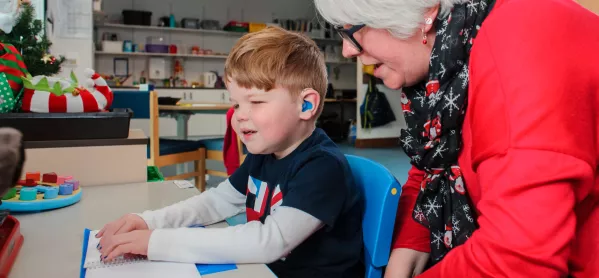Figures revealing that the number of blind and partially-sighted children has more than doubled in recent years - as specialist teachers have been cut - show that extra support in school is “urgently” needed, a Scottish charity has warned.
The charity, Royal Blind, said the new Scottish government figures showed the number of vision-impaired pupils in Scotland at its highest ever level. Pupil Census data shows 4,331 pupils had vision impairment in 2017, up from 2,005 in 2010.
During the same period, there has been a reduction in the number of specialist teachers for pupils with vision impairment. Last year, Tes Scotland analysis highlighted sharp falls in support staff roles in Scottish schools.
The charity, which runs the Royal Blind School and Learning Hub, is concerned that the trends are leaving specialist teachers in vision impairment with “unreasonable pressures”. It has called on local authorities and the Scottish government to take “urgent action” to ensure the right support is in place in schools.
Chief executive Mark O’Donnell said: “Up to 80 per cent of our learning is through our use of vision, so it is vitally important that specialist support is provided for pupils with vision impairment, who have a huge learning disadvantage in comparison to their fully-sighted peers.”
Children in need
Royal Blind, which is Scotland’s largest vision-impairment charity, said there is a need for more research into the reasons for the increase, adding that the British Medical Journal has found similar trends in England and Wales.
A spokesman said: “Research shows children with rare conditions, many of whom will be vision-impaired, are living longer through improvements in treatment. A study by the University of Edinburgh showed that the risk of neonatal death from premature birth more than halved between 1980 and 2005, and Blind Children UK has estimated than one in 20 babies born prematurely are likely to be blind.”
The Scottish government has just completed consultation about guidance on the presumption that children will enter mainstream education, and is looking at the responses.
A spokeswoman said: “Children and young people should learn in the environment which best suits their needs, whether that is in a mainstream or special-school setting.”
She added that the government was working to implement recommendations from the Scottish Parliament’s education committee on attainment of pupils with sensory impairments, with an update due this year.
The government stressed that changes to information gathering in 2010 have led to a large increase in the overall number of pupils recorded as having additional needs. In January, it announced that teenagers in Scotland had the right to ask for support and participate in meetings about additional support needs (ASN). Ministers claimed that Scottish children now had the most rights in Europe in terms of entitlement to ask for support in school.
The call for more support for blind children comes a day after a British short film won an Oscar for its portrayal of the struggles faced by deaf children attending mainstream school.
Want to keep up with the latest education news and opinion? Follow Tes on Twitter and like Tes on Facebook




